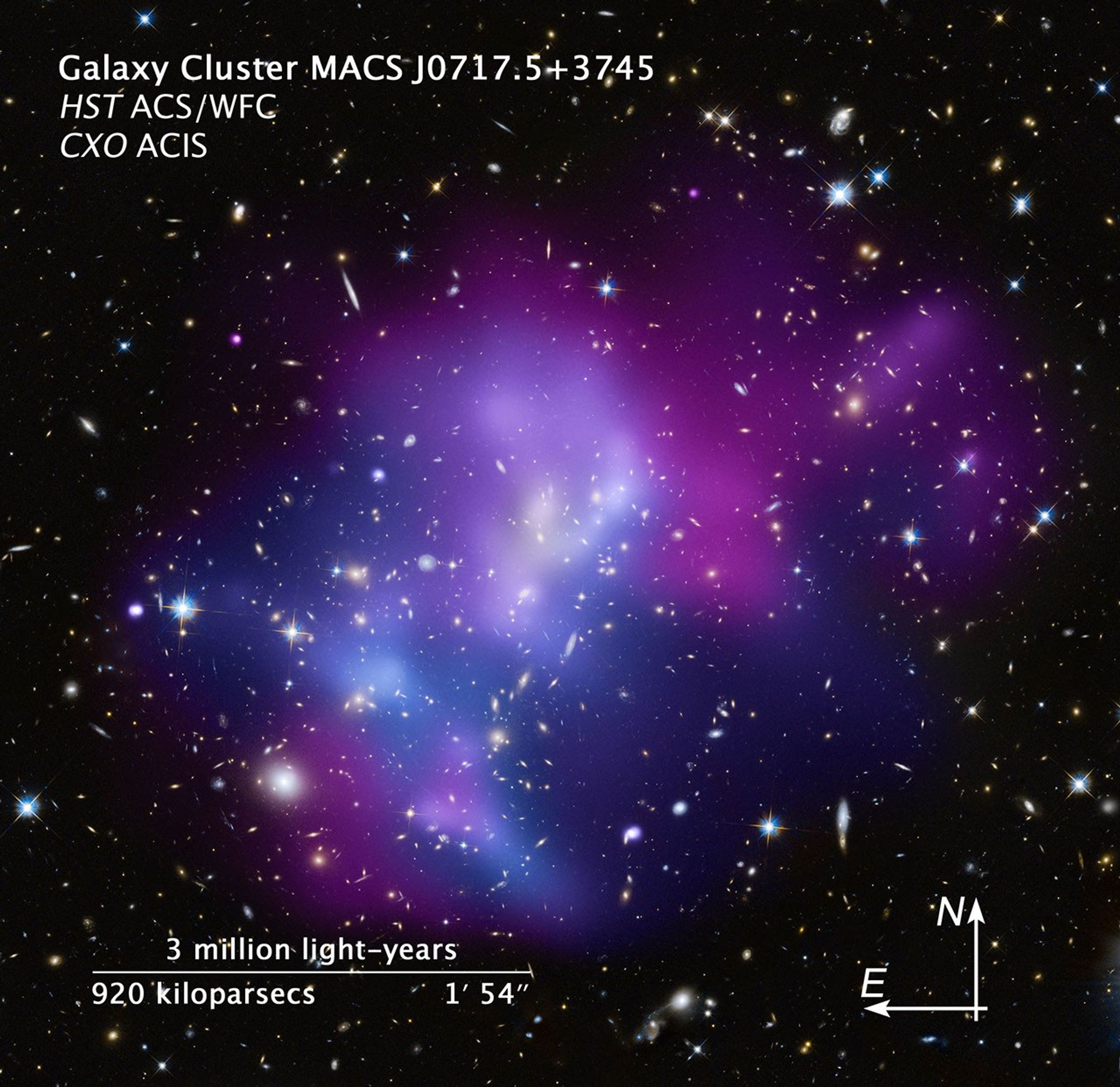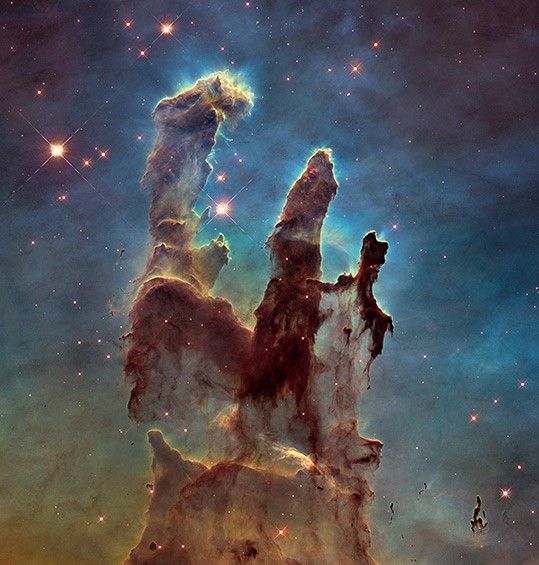The most crowded collision of galaxy clusters has been identified by combining information from three different telescopes. This result gives scientists a chance to learn what happens when some of the largest objects in the universe go at each other in a cosmic free-for-all. Using data from NASA's Chandra X-ray Observatory, Hubble Space Telescope, and the Keck Observatory in Hawaii, astronomers were able to determine the three-dimensional geometry and motion in the system MACS J0717.5+3745 (or MACS J0717, for short), located about 5.4 billion light-years from Earth.
1 min read
Galaxy Cluster MACS J0717
This composite image shows the massive galaxy cluster MACS J0717.5+3745 (MACS J0717, for short), where four separate galaxy clusters have been involved in a collision – the first time such a phenomenon has been documented. Hot gas is shown in an image from NASA's Chandra X-ray...
Related Images & Videos

Galaxy Cluster MACS J0717
This composite image shows the massive galaxy cluster MACS J0717.5+3745 (MACS J0717, for short), where four separate galaxy clusters have been involved in a collision – the first time such a phenomenon has been documented. Hot gas is shown in an image from NASA's Chandra X-ray...
Share
Details
Last Updated
Mar 20, 2025
Contact
Media
Claire Andreoli
NASA’s Goddard Space Flight Center
Greenbelt, Maryland
claire.andreoli@nasa.gov

































